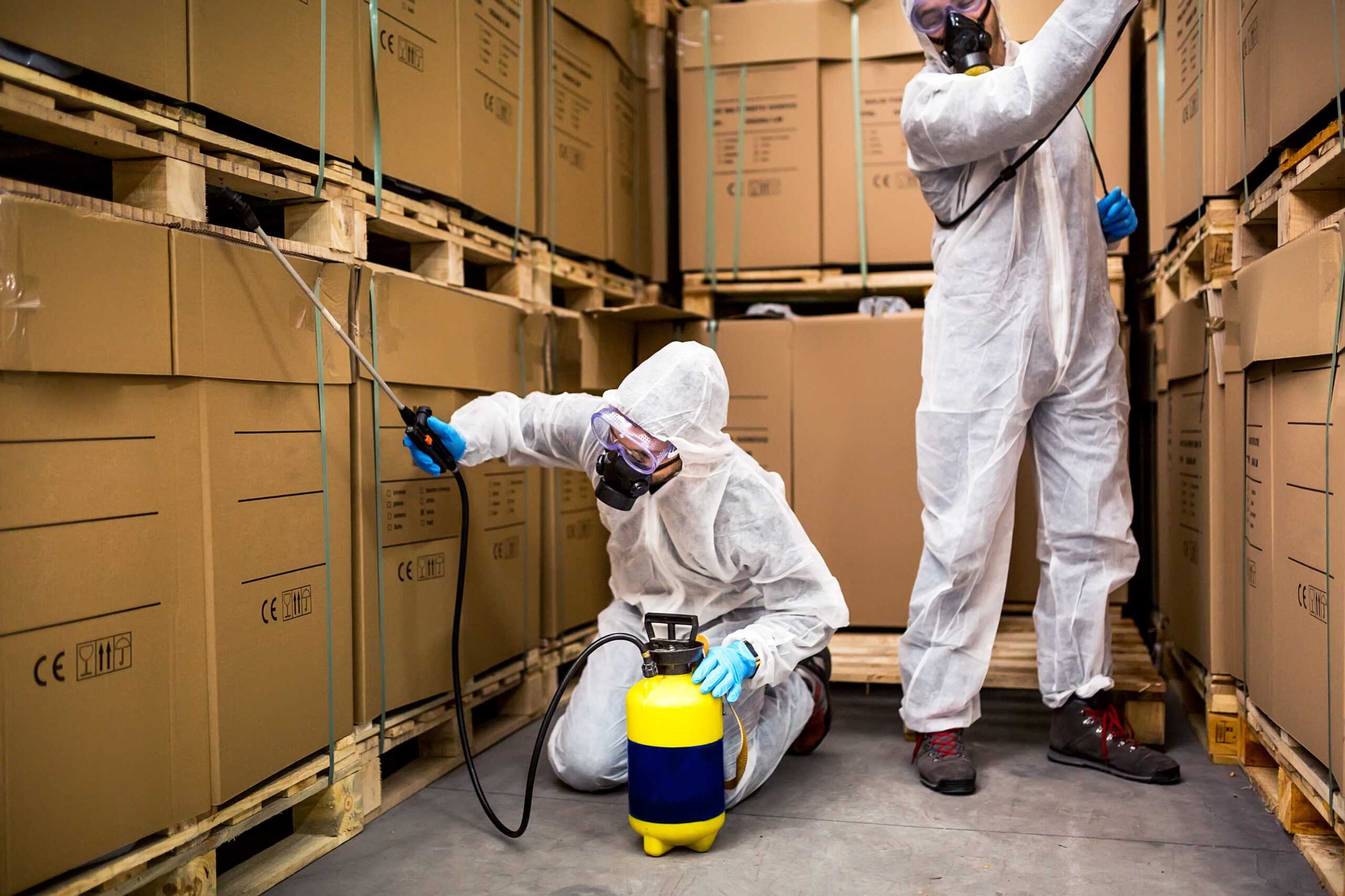Tips to keep bugs and other pesky visitors out of your premises
There is more insects biomass than any other terrestrial animal on earth. They also have the greatest number of described species and represent half of all known living organisms. Insects really are everywhere!
When it comes to warehouses the problem of potential insect pest activity intensifies due to the high concentration of similar bulk food stuffs allowing pests to easily move across and contaminate more products. Food storage and production facilities need to be constantly on guard to avoid issues that can affect both the customer and their perception of the business.
This is why bug-proofing your warehouse is so important. To achieve it, you need to understand what attracts them into your premises, and what changes you can implement that will help you get rid of the bugs once for all.
Here are some simple tips to keep your premises pest-free.
1. Add Screens to your Doors and Windows
Entry points are very important for commercial premises and warehouses, it is good to let natural ventilation from doors and windows. However, this may be very tempting for pests to get in, especially in the hot humid days of the summer. The installation of screens will let the fresh air in and is relatively simple to install and only requires basic tools. A 20-mesh or finer screen will keep out most common pests.
If you already have screens installed, remember to check them just before summer for any broken wire as insects can enter through small holes or tears.
2. Seal Around Utility Installation Penetrations
Every business will at some point have to deal with the installation of a cable line. This kind of work usually leaves our walls with tiny holes, that are the perfect invitation for pests to come in.
To avoid this, you should check the entire exterior of your premises and locate these types of openings, they are usually located at either ground level or along the roofline. Once you know where they are located, you just need to fill the smaller ones using pipe sealants or caulk. If there’s any large opening you should look for expandable polyurethane foam. For even larger gaps, fine screen steel mesh should be used as this will deter rodents too.
3. Keep your Your Warehouse Tidy and Clean
Clutter creates opportunities for different pests to hide, cleaning and of course, making sure that bins and other trash receptacles are emptied regularly is important. But you should also have in place a food and drink policy. Such policy should contain key elements to avoid food scraps being available for pests, for example, encouraging employees to eat and drink in the kitchen rather than at their desks and to avoid leaving food out of refrigerators and cabinets.
Cleaning up moisture and wet spots, like the ones generated by leaks will also prevent insects like ants and cockroaches from nesting in such areas, so making sure we fix areas with moisture quickly is a very good idea.
Warehouse and other commercial premises are usually more exposed to potential infestations due to their characteristics, where ceilings, walls and common areas are usually shared with other businesses. This is why we recommend scheduling regular inspections where professionals pest controllers will look for signs of potential problems with pests and will advise on the best way to fix problems for the long term.
Greenway IPM, an award-winning insect control company, is continuously innovating and finding new ways to deliver lower environmentally impact services that will help you get rid of those annoying guests.
As part of our process, we first have a full inspection of the affected area so our professional and expert team could find the best solution to stop the infestation, from ants to rodents and wasp nest removals, always with the minimum environmental impact.
Hopefully these tips will help you maintain your home clean of bugs. If you have more questions or want to discuss a specific issue with pests, please feel free to contact us. You will find more useful information and advice in our blog and FAQ sections.








